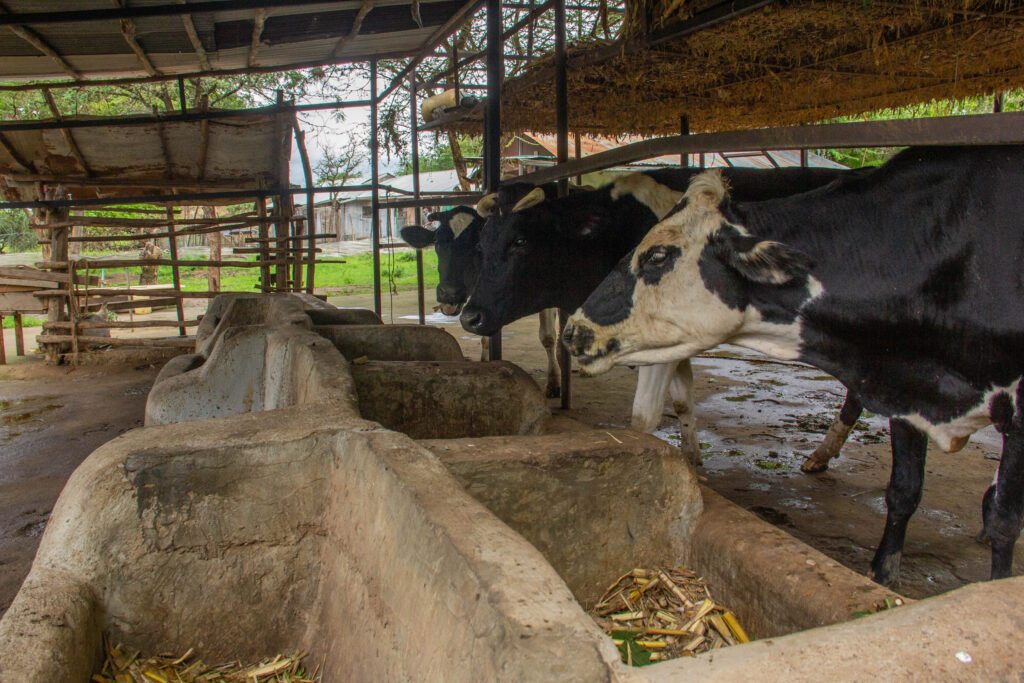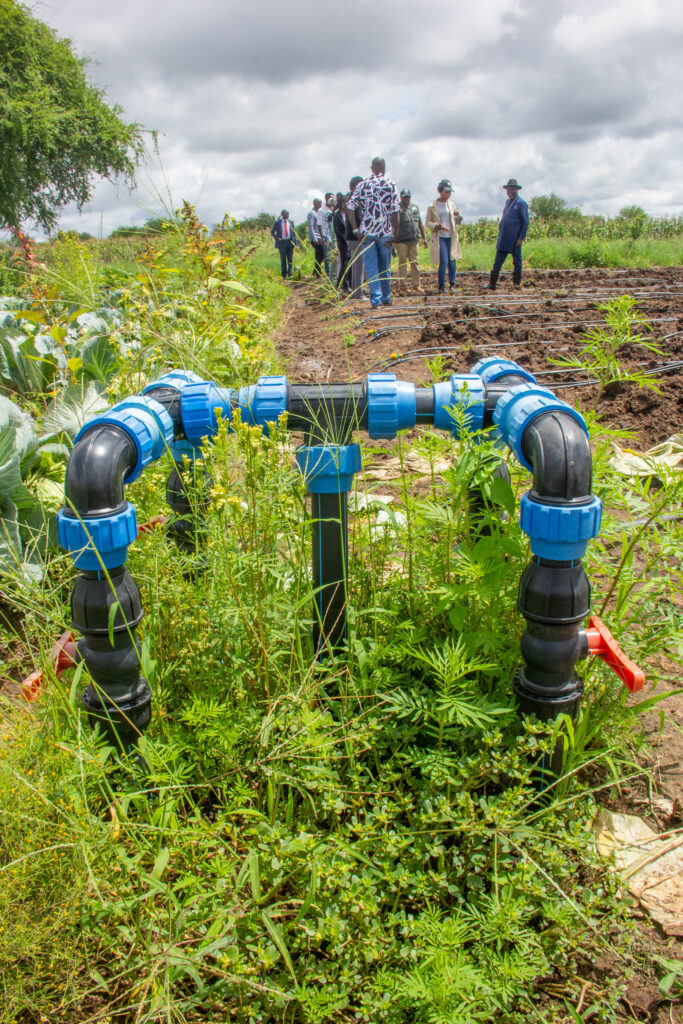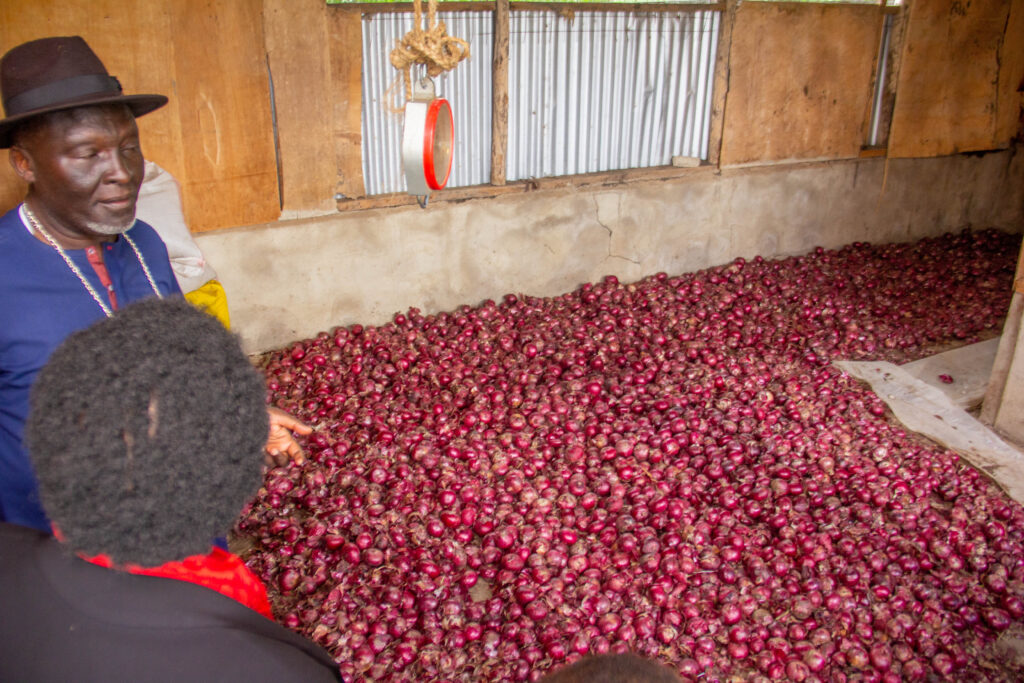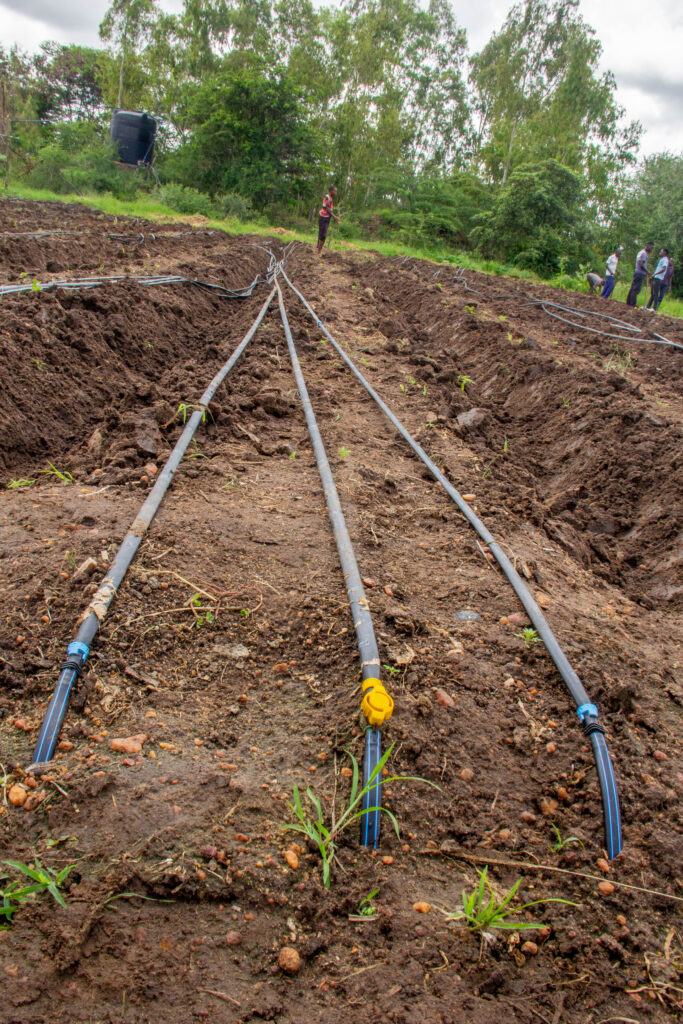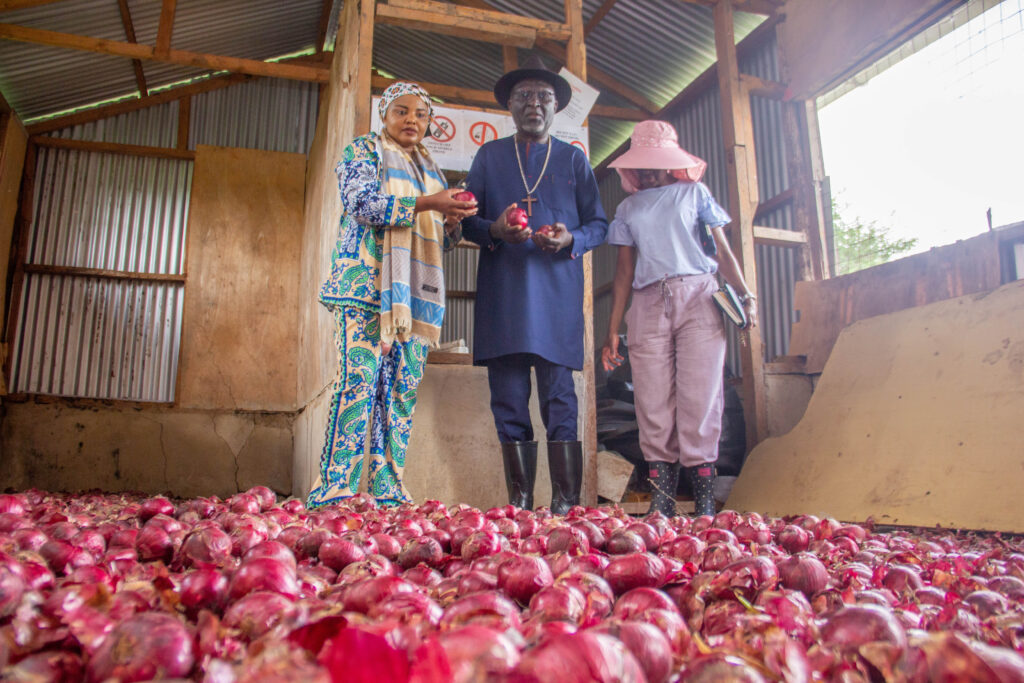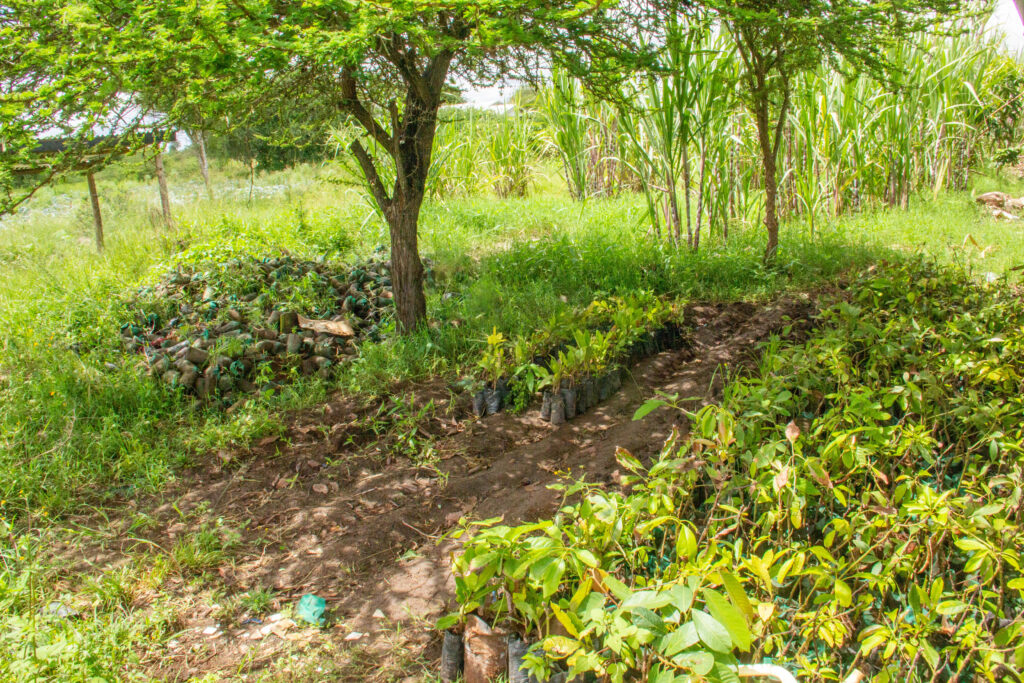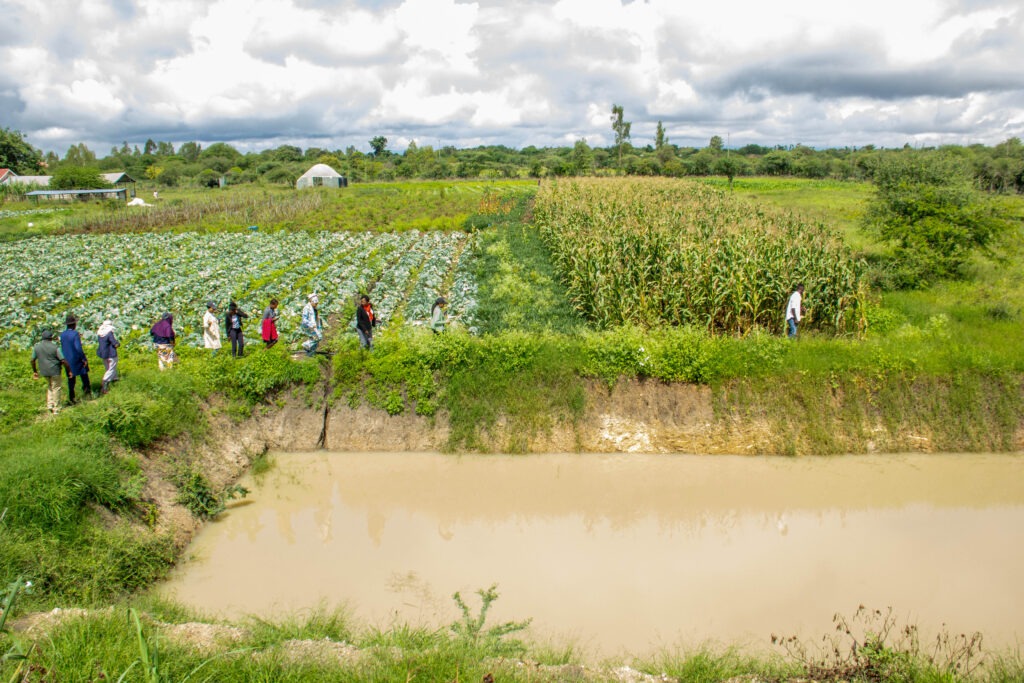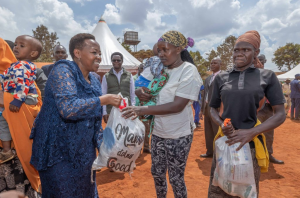Yatta constituency in Machakos County is not particularly famous as an agricultural hub. The region is largely semi-arid and has been subject to perennial drought over the years, rendering the residents food insecure.
But through adaptive research, Bishop Titus Masika is seeking to change the narrative of Yatta constituency and other semi-arid regions in Kenya.
When the MaMa Doing Good team and representatives from the Maji Mashinani organisation visited his farm on Tuesday, Bishop Masika spoke passionately about the need to build community resilience and have a mindset change in the face of the worsening climate crisis.
“Kenya is not dry, we have a lot of water resources that we can tap into. A mindset change is necessary for us to start optimising our resources and build resilience in our communities,” said Bishop Masika.
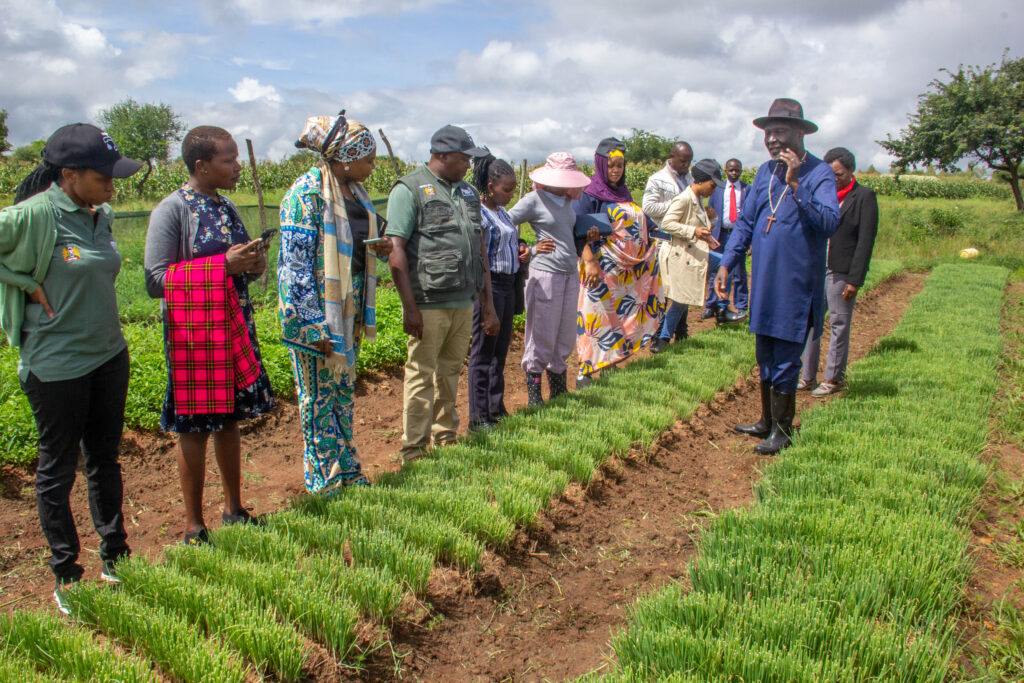
And he is not just a visionary, he is also a doer. He has taken tangible steps to match his vision for transforming and empowering communities.
Bishop Masika is the founder of the Christian Impact Mission (CIM), a faith-based agency that focuses on developing appropriate and easily adaptable farming models for the transformation of communities.
His own 25-acre farm in Makutano village in Yatta exemplifies what CIM is all about.
Bishop Masika has set it up as a model farm where he grows maize, sweet potatoes, chilies, onions, cabbages and sugarcane among other crops.
The choice of the crops grown on his farm are backed by market research, and on what works best with the soil in the area.
More importantly, the model farm has adopted an irrigation system that does not entirely depend on rainfall.
Water pans have been dug up on the farm to help store rain-water that can later be used to irrigate the crops when the rains are not sufficient or unavailable.
“On this farm, we have 7 water pans that can collect and store rainwater for up to 6 months. This allows us to harvest some of our crops twice using the reservoirs,” Bishop Masika said.
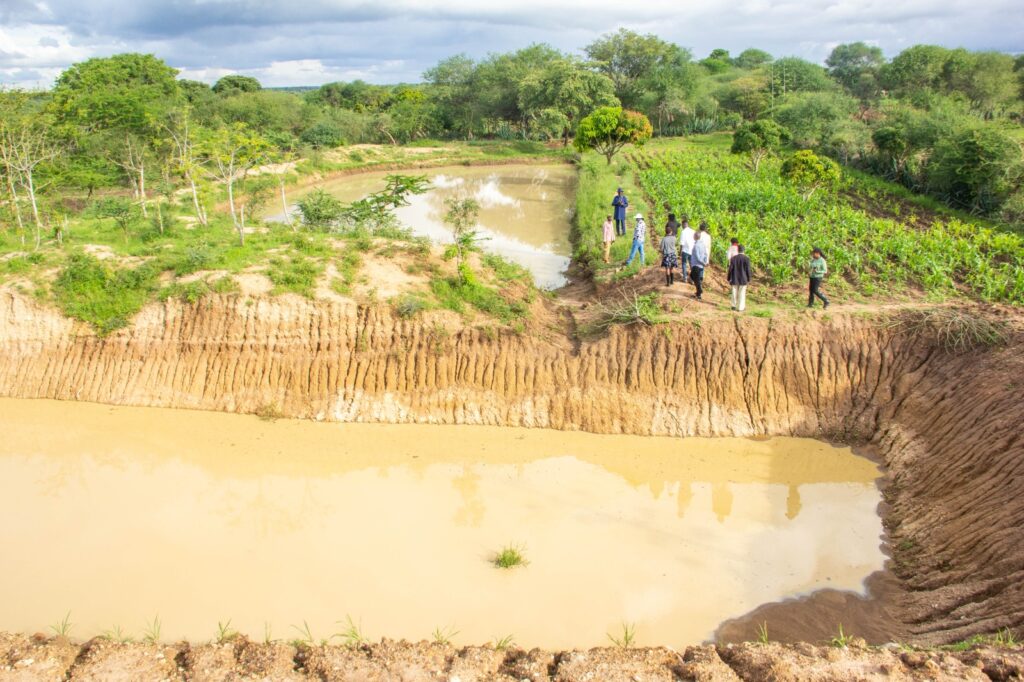
This is arguably one of the most impactful climate-adaptive initiatives implemented by CIM.
Water pans are artificial water reservoirs that collect and store rainwater for use in dry seasons. They are important in the climate action agenda because they can help communities adapt to water scarcity and droughts, which have been worsened by climate change.
By centering their activities around provision of water for irrigation, CIM is able to positively contribute to the community by fostering sustainable food production.
Besides this, the model farm run by Bishop Masika offers training to communities, particularly on mindset change with regards agriculture and guiding them on how they can adapt to the climate crisis.
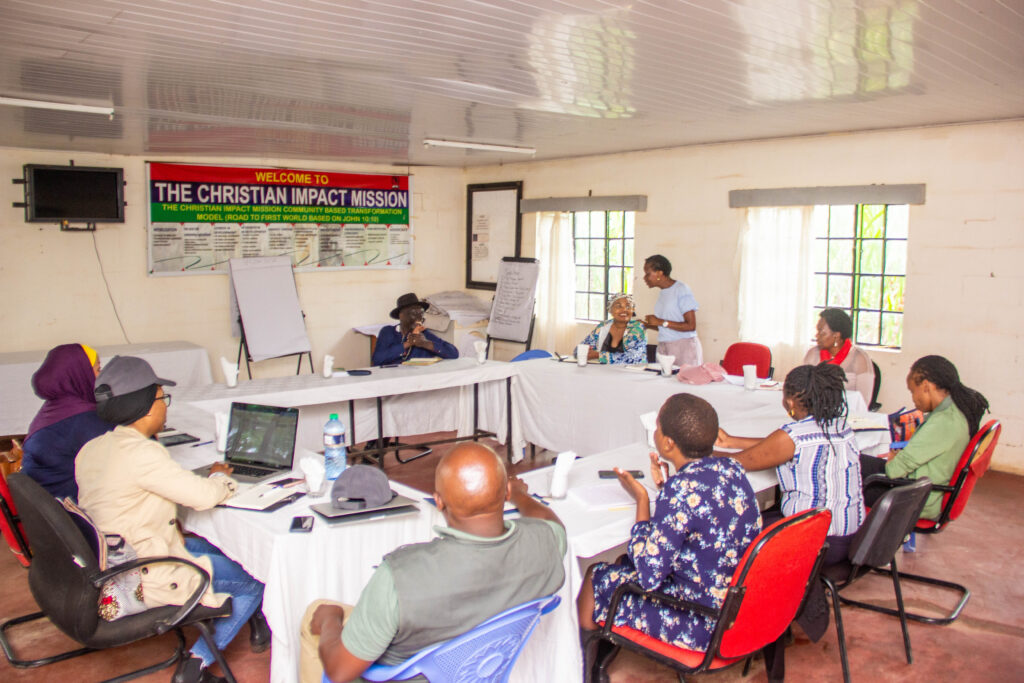
Through the Christian Impact Mission, Bishop Masika has been able to establish model farms in other semi-arid parts of Kenya like Pokot, Kilifi, Baringo and even across the border in Tanzania where CIM has partnered with World Vision to positively impact vulnerable communities.
The efforts of CIM have led to the construction of over 8,000 pans across the arid and semi-arid regions in Kenya.
The visit by the MaMa Doing Good team, led by the Chief of Staff at the Office of The First Lady Ms. Nancy Salamba, was a consultative meeting to learn and establish ways of scaling up climate-responsive initiatives to vulnerable communities.
Through the leadership of Her Excellency MaMa Rachel Ruto, the Office Of The First Lady has identified water as a primary catalyst for uplifting women in Kenya.
